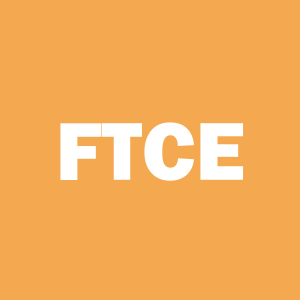First Trust Launches First Trust New Constructs Core Earnings Leaders ETF
An index-tracking ETF that provides exposure to companies with high earnings quality
"It's exciting to work with First Trust and see our differentiated approach to earnings analysis be made available for investors through an ETF. We've combined Bloomberg's own leading data and research with New Constructs' analysis to build the index with a new perspective on companies' true earnings,” said Allison Stone, Head of Multi-Asset Product, Bloomberg Index Services Limited.
A company’s reported earnings are often used as a metric to determine the overall operating profitability of their business. A deeper dive into the balance sheets and income statements, however, may reveal the true or, “Core,” earnings, which factor in the removal of unusual gains and losses, in turn painting a clearer picture of the overall quality of the company. New Constructs determines Core Earnings by reviewing company filings and identifying non-core and non-recurring gains and losses through their classification system using a combination of technology and expert analyst review. FTCE provides exposure to the companies that comprise the Bloomberg New Constructs Core Earnings Leaders Index (BCORE). BCORE uses a quantitative approach to select the top 100 companies in the Bloomberg 1000 Index (B1000) that have the highest earnings quality, as measured by Earnings Capture. Positive Earnings Capture illustrates stronger business fundamentals and may offer an opportunity for investment.
“Increasing valuations have been a key driver of returns for the current bull market, while earnings growth has been more muted. Consequently, for the bull market to continue, we believe investors may turn their focus more heavily towards stocks that have the potential to deliver high quality, repeatable earnings,” said Ryan Issakainen, CFA, Senior Vice President and ETF Strategist at First Trust.
For more information about First Trust, please contact Ryan Issakainen at (630) 765-8689 or RIssakainen@FTAdvisors.com.
About First Trust
First Trust is a federally registered investment advisor and serves as the fund’s investment advisor. First Trust and its affiliate First Trust Portfolios L.P. (“FTP”), a FINRA registered broker-dealer, are privately held companies that provide a variety of investment services. First Trust has collective assets under management or supervision of approximately
You should consider a fund’s investment objectives, risks, and charges and expenses carefully before investing. Contact First Trust Portfolios L.P. at 1-800-621-1675 or visit www.ftportfolios.com to obtain a prospectus or summary prospectus which contains this and other information about a fund. The prospectus or summary prospectus should be read carefully before investing.
Risk Considerations
You could lose money by investing in a fund. An investment in a fund is not a deposit of a bank and is not insured or guaranteed. There can be no assurance that a fund's objective(s) will be achieved. Investors buying or selling shares on the secondary market may incur customary brokerage commissions. Please refer to each fund's prospectus and Statement of Additional Information for additional details on a fund's risks. The order of the below risk factors does not indicate the significance of any particular risk factor.
Unlike mutual funds, shares of the fund may only be redeemed directly from a fund by authorized participants in very large creation/redemption units. If a fund's authorized participants are unable to proceed with creation/redemption orders and no other authorized participant is able to step forward to create or redeem, fund shares may trade at a premium or discount to a fund's net asset value and possibly face delisting and the bid/ask spread may widen.
Current market conditions risk is the risk that a particular investment, or shares of the fund in general, may fall in value due to current market conditions. As a means to fight inflation, the Federal Reserve and certain foreign central banks have raised interest rates and expect to continue to do so, and the Federal Reserve has announced that it intends to reverse previously implemented quantitative easing. Recent and potential future bank failures could result in disruption to the broader banking industry or markets generally and reduce confidence in financial institutions and the economy as a whole, which may also heighten market volatility and reduce liquidity. Ongoing armed conflicts between
A fund is susceptible to operational risks through breaches in cyber security. Such events could cause a fund to incur regulatory penalties, reputational damage, additional compliance costs associated with corrective measures and/or financial loss.
Equity securities may decline significantly in price over short or extended periods of time, and such declines may occur in the equity market as a whole, or they may occur in only a particular country, company, industry or sector of the market.
An index fund will be concentrated in an industry or a group of industries to the extent that the index is so concentrated. A fund with significant exposure to a single asset class, or the securities of issuers within the same country, state, region, industry, or sector may have its value more affected by an adverse economic, business or political development than a broadly diversified fund.
A fund may be a constituent of one or more indices or models which could greatly affect a fund's trading activity, size and volatility.
There is no assurance that the index provider or its agents will compile or maintain the index accurately. Losses or costs associated with any index provider errors generally will be borne by a fund and its shareholders.
Information technology companies are subject to certain risks, including rapidly changing technologies, short product life cycles, fierce competition, aggressive pricing and reduced profit margins, loss of patent, copyright and trademark protections, cyclical market patterns, evolving industry standards and regulation and frequent new product introductions.
Large capitalization companies may grow at a slower rate than the overall market.
Market risk is the risk that a particular security, or shares of a fund in general may fall in value. Securities are subject to market fluctuations caused by such factors as general economic conditions, political events, regulatory or market developments, changes in interest rates and perceived trends in securities prices. Shares of a fund could decline in value or underperform other investments as a result. In addition, local, regional or global events such as war, acts of terrorism, spread of infectious disease or other public health issues, recessions, natural disasters or other events could have significant negative impact on a fund.
A fund faces numerous market trading risks, including the potential lack of an active market for fund shares due to a limited number of market makers. Decisions by market makers or authorized participants to reduce their role or step away in times of market stress could inhibit the effectiveness of the arbitrage process in maintaining the relationship between the underlying values of a fund's portfolio securities and a fund's market price.
Large inflows and outflows may impact a new fund's market exposure for limited periods of time.
An index fund's return may not match the return of the index for a number of reasons including operating expenses, costs of buying and selling securities to reflect changes in the index, and the fact that a fund's portfolio holdings may not exactly replicate the index.
A fund classified as "non-diversified" may invest a relatively high percentage of its assets in a limited number of issuers. As a result, a fund may be more susceptible to a single adverse economic or regulatory occurrence affecting one or more of these issuers, experience increased volatility and be highly concentrated in certain issuers.
A fund and a fund's advisor may seek to reduce various operational risks through controls and procedures, but it is not possible to completely protect against such risks. The fund also relies on third parties for a range of services, including custody, and any delay or failure related to those services may affect the fund's ability to meet its objective.
A fund that invests in securities included in or representative of an index will hold those securities regardless of investment merit and the fund generally will not take defensive positions in declining markets.
The market price of a fund's shares will generally fluctuate in accordance with changes in the fund's net asset value ("NAV") as well as the relative supply of and demand for shares on the exchange, and a fund's investment advisor cannot predict whether shares will trade below, at or above their NAV.
Securities of small- and mid-capitalization companies may experience greater price volatility and be less liquid than larger, more established companies.
Trading on an exchange may be halted due to market conditions or other reasons. There can be no assurance that a fund's requirements to maintain the exchange listing will continue to be met or be unchanged.
First Trust Advisors L.P. (FTA) is the adviser to the First Trust fund(s). FTA is an affiliate of First Trust Portfolios L.P., the distributor of the fund(s).
The information presented is not intended to constitute an investment recommendation for, or advice to, any specific person. By providing this information, First Trust is not undertaking to give advice in any fiduciary capacity within the meaning of ERISA, the Internal Revenue Code or any other regulatory framework. Financial professionals are responsible for evaluating investment risks independently and for exercising independent judgment in determining whether investments are appropriate for their clients.
"Bloomberg®" and the indices licensed herein (the "Indices") are service marks of Bloomberg Finance L.P. and its affiliates, including Bloomberg Index Services Limited ("BISL"), the administrator of the Indices (collectively, "Bloomberg") and have been licensed for use for certain purposes by First Trust Advisors L.P. (the "Licensee"). Bloomberg is not affiliated with the Licensee, and Bloomberg does not approve, endorse, review, or recommend the financial products referenced herein (the "Financial Products"). Bloomberg does not guarantee the timeliness, accurateness, or completeness of any data or information relating to the Indices or the Financial Products.
Definitions
The Bloomberg US 1000 Index is a float market-cap-weighted benchmark of the 1000 most highly capitalized US companies.
View source version on businesswire.com: https://www.businesswire.com/news/home/20241003998749/en/
Ryan Issakainen
First Trust
(630) 765-8689
RIssakainen@FTAdvisors.com
Source: First Trust Advisors L.P.







